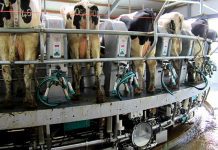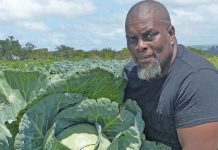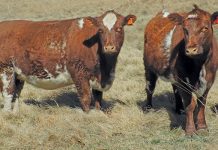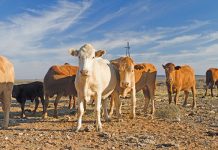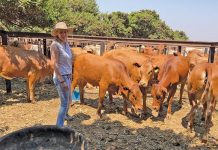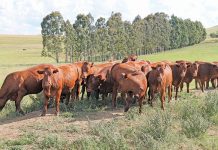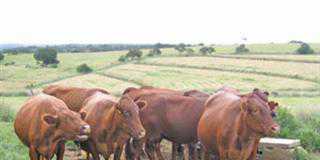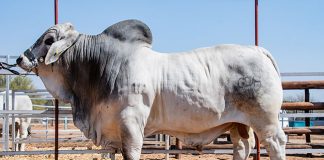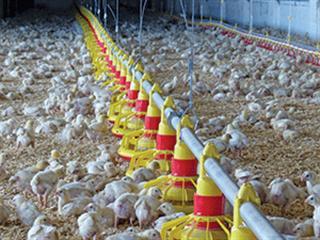
When Nomthunzi’s advocate husband, Elliot, was transferred to East London in 2003, the couple settled on a 3,5 ha plot in Berlin about 40km outside East London. “When we got to Berlin that urge to farm developed and I kissed my nursing career goodbye,” says Nomthunzi. By 2005 Nomthunzi had begun to focus on broiler production and in September 2008, beneficiaries of a government land reform programme, the couple moved to High Heaven, a 68ha farm closer to East London. In 2009 Nomthunzi won the award for Female Farmer of the Year for the Eastern Cape’s Amathole region.
Childhood passion
Nomthunzi’s decision almost a decade ago to reinvent herself as a farmer was linked to her childhood on the once agriculturally productive St Matthews Anglican mission near Keiskammahoek in the former Ciskei. “I remember huge fields of mielies and vegetables and lots of milk and sour milk (maas). We lived a healthy life at St Matthews,” she recalls. Her childhood passion for agriculture, nurtured by her dad Victor Nokwe, a teacher at the mission, was matched by her adult enthusiasm to get going on the Berlin plot.
“When my pension payout came, I went to town,” she admits. “I bought pigs, cows and chickens.” With the help of extension officers from the Eastern Cape Department of Rural Development and Agrarian Reform (DRDAR), broilers became the focus of her operation. After a successful first cycle with 100 broilers, Nomthunzi had a difficult second cycle with high
mortalities.

Eastern Cape Department of Rural Development and Agrarian Reform extension officer Melile Gaga and Nomthunzi Nduzulwana in a new chicken house on High Heaven farm.
However, with continued extension support, she persevered and within a few years was producing thousands of broilers on the tiny property. “I started to grasp the principles of the production process and by the time we left Berlin I was producing 5 000 broilers per cycle,” she says. “The extension officers walked me through the process and what I know today I know because of them.”
The Berlin plot did not allow for significant expansion, and Nomthunzi began to investigate the possibility of finding a farm closer to East London. In September 2008 she leased High Heaven farm from the state, with an option to buy, as stipulated in the Department of Rural Development and Land Reform’s Proactive Land Acquisition Strategy (Plas) programme.
Hard realities
In January 2009, Nomthunzi learnt just how challenging the management of a commercial farm could be when she slipped and broke her ankle while fixing a leak in a hydroponic tunnel. Reduced to hobbling around the farm on crutches, six months later she had to deal with gale force winds that shredded plastic and caused structural damage to her tunnels. By the end of 2009, a severe drought was putting strain on the operation’s cash flow and Nomthunzi looked into raising a loan to revitalise production.

A new chicken house is currently under construction.
“The money from the sales of our properties (in Port Elizabeth and Berlin) was gone,” she says. “I knew I needed capital to start over.” In late 2009 she successfully secured money via Old Mutual’s Masisizane Fund. But by mid-2010 the boreholes were dry and the two dams on the farm were reduced to muddy puddles by the continuing drought. Production was badly affected.
“When the dams and boreholes dried up we had to buy water from the municipality,” she recalls. “Most of the money went into feed to keep the dairy cows alive and we used my husband’s salary to pay workers.” Once again Nomthunzi sought out a loan, this time qualifying for assistance via the Imvaba Eastern Cape Provincial Co-operative Development Fund (via the ECDC).
The second half of 2010 saw her make an admirable recovery and by October she was producing up to 50 000 broilers per production cycle. The broilers were slaughtered in a small abattoir on the farm and marketed to a leading retailer in the Eastern Cape. “I supplied most of the Spars up to Mthatha and they were happy with my product,” she recalls proudly.
In 2011 good rains fell in the area and it seemed that the drought had broken. Then in late April 2011 disaster struck in the form of extreme wet weather. “The rains of 2011 were terrible; roofs blew off and feed in the silos got wet and was completely destroyed,” she says. “When we opened up the chicken houses, broilers just floated out, dead.”
A new beginning The loss of the broilers in the flooded chicken houses was a shattering blow for Nomthunzi. “I was completely paralysed – all my dreams were gone. There was nothing I could do because of the terrible condition of the chicken houses. The only thing that stopped me going back to nursing was that I hadn’t kept up my registration with the South African Nursing Council.” She applied for disaster relief which is still pending.

Tomatoes grown in the tunnels are sold on the local fresh produce market.
However, the DRDLR recapitalisation and development programme (Recap) gave High Heaven a much needed financial boost. Although the option to buy the farm was put on hold, Recap funds of R6,3 million, made available in July 2012, have been used to restart broiler production infrastructure on the farm, including the building of six new chicken houses. These modern chicken houses have the potential to hold up to 13 000 broilers at a density of 13/ m2 and will supply a revamped chicken abattoir.
She says the new chicken houses are allowing her to produce significant numbers of broilers efficiently. “You must have enough space, you must have curtains to keep the warmth in and enough heaters to warm up the house,” she says. “Most importantly if you want to see profit you need numbers.” She is currently on her second cycle of broiler production with Cobb and Ross broilers in four of the completed chicken houses.
Broilers are grown out to 35 days before being marketed to Grassdale Poultry of Stutterheim. Wood shavings used for bedding in the chicken houses are sourced from the Stutterheim timber industry while feed comes from Epol near Berlin. Broiler mortality rates are below 5% and houses are cleaned, disinfected and rested for two weeks before a new cycle is begun. Nomthunzi has learnt the hard way that farming is not an easy career path, but with financial and extension support and a lot of determination she is moving in the right direction and focused on succeeding.
Contact Nomthunzi Nduzulwana on 078 848 8308.

